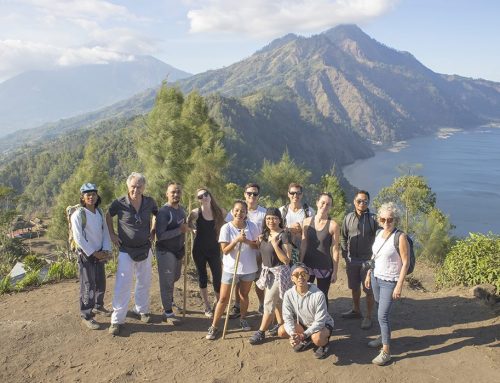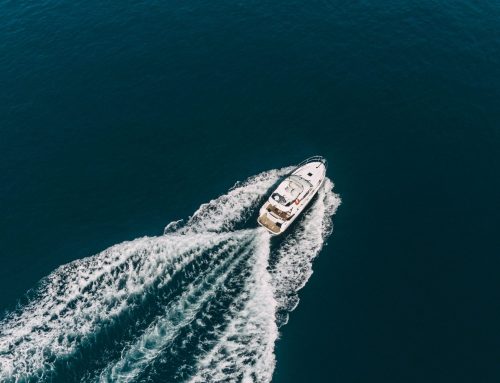25 years sounds like a long time. Back in 1998 we would never have guessed that in just a few years, on the other side of the millennium, life as we knew it would change completely. How we gather our information, how we plan a holiday, or how we share our opinions, would all drastically transform in ways that may have seemed unbelievable at the time. The world shrank in 25 years, and in the palm of our hands, we now hold more power than we ever have before.
In the early 90s, before online reviews, the internet, iPhones and Instagram, planning the perfect holiday meant relying on recommendations from a trusted travel agent or reliable friends. Useful, credible information was not readily available, and so it was trust that played a large role in our travel planning.

Around this same time, on the idyllic island of Bali, a group of creative minds got together and began curating a collection of beautiful homes, renting them out to holidaymakers seeking an alternative to hotels. With this, Elite Havens was born, a unique villa marketplace that brought together property owners, and the intrepid travelers looking for their home away from home.
As the years passed, to keep in step with the ever-evolving needs of travelers, Elite Havens’ army of travel and hospitality experts evolved too, making us Asia’s premier curator of luxury holiday experiences.
On our 25th Anniversary, we take a look back, identifying the top travel trends of the past 25 years.
1. Birth of Travel Tech
Google celebrated its 25th anniversary in September ‘23, reminding us of how recent the world of the internet is. In the 80s and early 90s, internet search did not exist. Websites did not exist. Neither did social media. Travel planning, from booking flights to choosing accommodation, entailed a trip to a physical travel agency, leafing through glossy travel brochures, and then taking a leap of faith, hoping that your vacation would live up to the promises made in those brochures.
Fast forward to today, and the landscape looks drastically different, with online travel bookings projected to reach a staggering $666 billion by 2024, a 26 per cent increase from 2019 levels, according to Skift Research.

One of the biggest changes brought about by the rise of the internet is the proliferation of online accommodation platforms. EliteHavens.com created an online marketplace for luxury villa rentals, a concept that was previously nonexistent, while the likes of Airbnb.com, Booking.com, and Trip.com, ensured that online booking platforms were here to stay, offering seamless online booking and payment processes, and empowering travelers to explore a variety of lodging options across the globe, instead of depending on a handful of familiar hotel chains.
The last decade has seen smartphones become ubiquitous, making it easier for travelers to plan their journeys on the go. Ride-sharing services like Grab, Uber and Lyft add another layer of convenience to local transportation, redefining urban mobility for tourists.
2. Rise of the amateur travel writer
With the explosion of mobile technology and online booking platforms, another transformative trend has emerged within the travel industry – the era of peer reviews. As we collectively began to share and chronicle our travel experiences, more of our decision-making became driven by reviews and recommendations from fellow travelers.
Elite Havens played a pioneering role in nurturing this trend from its inception, capturing guest reviews and using valuable feedback to enhance services, facilities and guest experiences, being among the first to showcase their unique offerings to prospective travelers by publishing guest reviews online.

Today, online review platforms such as Tripadvisor and Google Reviews have reshaped consumer behaviour, as travelers now rely heavily on reviews to gain insights into destinations and services that only previous guests can provide. This has prompted destinations and providers to prioritise quality and service excellence, putting customer satisfaction at the forefront of their product promise.
3. Private villas over hotels
“It’s a really nice feeling because it’s a home. It literally is a home away from home, and I think that’s the essence of booking a villa over a hotel.”
This quote from a regular Elite Havens guest sums up the remarkable surge in popularity of private rental accommodation as an alternative to hotels in the past 25 years, underscoring a shift in how travelers define luxury. It’s no longer just about a place to stay; it’s about immersing oneself in a destination while enjoying privacy, comfort and personalization.
Private villas offer an escape from crowded hotels. And in today’s travel landscape, where immersive experiences are highly sought after, luxury villas excel in catering to unique needs. Their dedicated staff curate tailored experiences, from personalized dining with renowned chefs to exclusive local excursions, elevating the travel journey beyond the ordinary.

As technology advances and travel becomes more accessible, the allure of private luxury villas is set to persist, offering travelers a world of possibilities to explore from their own private sanctuary.
4. Media-Fuelled Travel
With Netflix in every home, media-fueled travel is no longer limited to travel documentaries. 64% of travelers are inspired to choose a travel destination featured in a favourite TV show or film, according to American Express Travel’s by 2023 Global Travel Trends Report.
Starting with travel shows on traditional TV and evolving into a multitude of streaming series, picturesque destinations, unique cultures, and mouth-watering cuisines are showcased, igniting a desire in travelers to visit the places they see on the small screen for themselves.

The recent popularity of the HBO series ‘The White Lotus’ has demonstrated how contemporary media continues to shape travel trends. The show’s portrayal of Sicily, has led to a notable surge in visits to the region, especially to the hotel where the show was filmed. In 2010, the release of the Julia Roberts film ‘Eat Pray Love’ sent many travelers towards the mystical shores of Bali.
Programs such as Anthony Bourdain’s ‘Parts Unknown’ and Rick Steves’ ‘Europe’ have inspired countless wanderlust-driven adventures. They urge tourists to seek immersive experiences, to go beyond traditional tourist spots, and to create their own “Eat. Pray. Love” journeys – to then be shared on social media.
5. Slow Travel
There are various types of travelers worldwide, some inclined to meticulously complete checklists of destinations, while others are content to forgo some spots in favor of prolonging their stays and fully immersing themselves in others. The notion of slow travel caters to the latter group of travelers, where Elite Havens has established a unique space over the last 25 years, facilitating extended stays in holiday homes, including fully serviced private villas.
In recent times, slow travel has been steadily gaining popularity as a response to the rapid, bucket-list-driven style of tourism. Advocating for a more profound and conscious exploration, slow travel urges tourists to adopt a relaxed pace, relishing in the essence of a place through activities like cycling, gastronomic adventures, and trekking expeditions. By embracing a slower rhythm and actively engaging with local customs, visitors can uncover the intricate nuances of a destination, fostering a deeper and more authentic connection.
Moreover, the principles of slow tourism are aligned with sustainable practices, often encouraging the use of eco-friendly transportation options such as trains over planes, thus reducing the environmental impact associated with travel. This intentional approach not only benefits the planet but also bolsters local economies, as travelers take the time to uncover hidden treasures and support businesses away from the typical tourist circuit, promoting a more inclusive and community-oriented travel experience.
6. Social Media & Influencers
The internet helped elevate the visibility of the villa industry but what took it to the next level is the rise of social media. Travel influencers have had a profound impact on the travel industry in recent years, with their engaging content and ability to inspire wanderlust among their followers.
According to a survey conducted by Influencer Marketing Hub in 2020, 92 per cent of consumers trust recommendations from influencers over traditional advertisements. This trust has translated into tangible effects for the travel industry.
One notable example is the rise of destination-specific influencers. Travelers now plan their trips based on Instagram-worthy locations showcased by influencers, leading to a surge in tourism to those places. For instance, the popularity of Bali among influencers resulted in a 113% increase in tourism from 2012 to 2018, according to the Bali Tourism Board, a period that coincides with the rise of social media influencers.

7. Curated Holidays
“Today’s luxury travelers are seeking far more than the ordinary, cookie-cutter vacation experience. They crave meticulously tailored and personalized holidays”, Maya Rigg, CEO of Elite Havens, says.
Maya further explains that their typical guest is seeking something that sits between old and new travel. “Our guests are typically planning their vacation with a large family or a group of friends. They want the convenience of an online search and booking platform with all of the benefits that come with it. But they also want local knowledge, recommendations, and the ability to fully personalise every part of their stay – those things that can’t be done using a typical booking platform such as Booking.com or AirBNB.”
“At Elite Havens,” says Maya, “we know that no two travelling parties are the same. Each comes with their own unique personalities, needs and preferences. More than 300 properties across different locations allows us a varied pool to pick from when our Reservations Specialists match a villa with a particular guest’s requirements. We work with our guests, understand their brief, and put together our recommendation including the destination, location, property, dining, and any other experience they need.”
8. The Asian traveller
The profile of travellers has changed dramatically in the past 25 years and Chinese, Indian, Japanese, Korean and Singaporean travellers now account for a very significant chunk of the entire travel market, especially the luxury segment.
China, with its massive population and economic development, has become a major force in the global tourism market in the past few decades. Chinese tourists are renowned for their appetite for luxury goods and experiences, leading to a boom in high-end tourism around the world. This phenomenon has fueled growth in sectors such as luxury accommodation, designer retail, and gourmet dining. Furthermore, it has encouraged destinations to adapt to the preferences and needs of Asian travelers, including offering Chinese-language services and catering to their culinary tastes.

India, on the other hand, has witnessed a surge in outbound tourism driven by its growing middle class and increased international exposure. Indian travelers have diversified their choices beyond traditional destinations, seeking unique and experiential adventures. This trend has led to a shift in the travel industry’s focus, with destinations worldwide now catering to the Indian market by offering culturally relevant experiences, vegetarian cuisine options, and tailored itineraries. Furthermore, the rise of the Indian tech industry has led to the emergence of innovative travel platforms, making travel planning and booking more convenient for Indian tourists.
9. Remote Working
With the popularity of the internet and almost all office work going digital, people began to realise they don’t need to physically be in their home city to be working. PCs gave way to laptops and wired LAN connections moved onto WiFi. More companies started allowing their employees to work remotely when required, giving rise to the first digital nomads. One no longer needed to take a month off from work for a family holiday. You could book a villa for a month and while the family enjoys the facilities, you can continue your office work as required. The Covid-19 pandemic accelerated this trend as businesses adapted to remote work out of necessity, and individuals sought new ways to balance work and life.
“Clients often ask for excellent WiFi connections, because they would like to work during their holidays. But it does not affect the length of their stay… most of our client’s book for a minimum of seven nights and often also opt for three-week holidays when it comes to overseas bookings.”, reports Dr Martina Gladbach – Managing Owner of Landmark GmbH – Tour operator engaged in luxury villa rentals.

Statistics reveal the remarkable growth of digital nomadism. Pre-pandemic, estimates suggested there were around 7.3 million digital nomads globally, with projections of the number doubling by 2035. However, by 2021, a study reported that 10-11% of the global workforce had transitioned into some form of nomadic work arrangement.
This phenomenon is fueled by the desire for a better work-life balance. A survey found that 74% of digital nomads cited improved work-life balance as the primary reason for choosing this lifestyle. Longer stay holidays have become the norm, with the average stay in a single location extending to several weeks or even months.
What does the future hold?
In the ever-evolving landscape of travel, the only unwavering constant has been change, taking us into unchartered territories with each passing year. Predicting the trends that lie ahead of us is a challenge. Some are already at our doorstep, others are appearing on the horizon, and some will surprise us entirely.
The Human Connection
The future traveller expects deeply personalised experiences. Technology will help facilitate this but there will always be a place for human connection, whether from a trusted travel expert with a local’s perspective, or friends who know us so well they can help us cut through the noise of travel guides and blogs.

This human connection, blended seamlessly with deep local knowledge and the convenience of a simple booking platform, is the unique space where Elite Havens exists and prospers – celebrating the uniqueness of every guest, and creating completely bespoke experiences, while providing our guests with the knowledge and convenience they need for a truly extraordinary experience.
The AI evolution
Artificial Intelligence took a giant leap forward in recent years and is widely expected to redefine the travel industry in the coming years. From delivering highly personalized services to facilitating dynamic pricing strategies, AI emerges as a key player in shaping the future traveler’s journey. Personalized travel suggestions, driven by individual preferences and past experiences, ensure each trip is a bespoke adventure.
The rise and rise of alternative accommodation
What began as a notable trend over the past 25 years will continue to shape travel in the years ahead, with more travelers actively seeking out alternative accommodation options offering bespoke, private experiences.

The COVID-19 pandemic acted as a catalyst, introducing many to the unparalleled charm of secluded accommodations, spurring a rapid migration towards bespoke stays. In the future, we anticipate this trend to gain even greater momentum, as discerning travelers continue to prioritize unique, personalized, and health-conscious experiences, forging a path away from conventional hotels towards the alluring realm of private luxury villas.
Virtual Reality
In the rapidly evolving landscape of travel, virtual reality (VR) emerges as a transformative force. Beyond a mere technological trend, VR revolutionizes the way we explore destinations, view accommodation, and experience attractions. This immersive technology empowers travelers during the decision-making process, providing certainty and a sense of place without the need for physical presence. Whether seeking the perfect beachfront retreat or inspecting corporate event venues, virtual reality becomes a pivotal tool in shaping travel experiences.
Gen Z
While Baby Boomers and Millennials have been a dominant force in shaping travel trends of the past, looking ahead to the next wave of change, all eyes are on Generation Z. Born between 1995 and 2015, Gen Z is known for their individuality and embrace of unique experiences. Highly influenced by technology and social media, with a strong eco-conscious mindset, this influential generation will play a significant role in defining the values and priorities of the travel industry. As this influential generation comes of age, their evolving travel preferences will undoubtedly chart a new course for the travel landscape, marking a distinct departure from the trends set by their predecessors.

Through 25 years of travel, Elite Havens has not merely adapted but lead the charge, pioneering luxury and anticipating trends. Looking forward, our commitment to personalized experiences, coupled with cutting-edge technology, positions us as trailblazers in an ever-evolving landscape. Challenges and surprises lie ahead, yet with a legacy of innovation, Elite Havens stands ready to lead the way, offering not just accommodation but an unwavering commitment to crafting extraordinary journeys in the dynamic world of travel.












